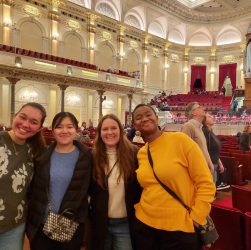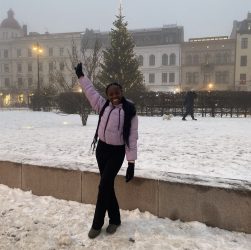Matthew Schneider M. Mechanical Engineering Semester Exchange in the First Semester, 2024 at Stuttgart University Pre-departure: Embarking on an …


Matthew Schneider M. Mechanical Engineering Semester Exchange in the First Semester, 2024 at Stuttgart University Pre-departure: Embarking on an …

Nthatisi Mota M. Economics Semester Exchange in the First Semester, 2024 at the University of Zurich Pre-departure: Embarking on …

Chawanangwa Mhango M. Phil in Sustainable Development Semester Exchange in the First Semester, 2024 at Lund University Pre-departure: Expressing …